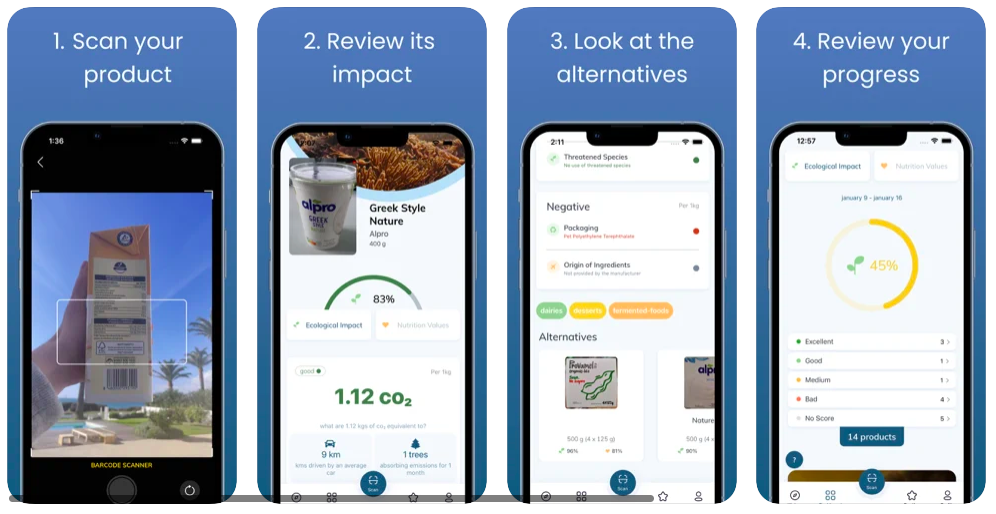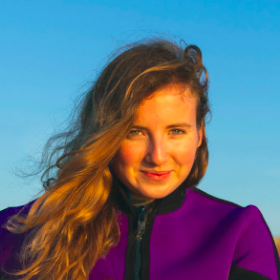
Released just this week, a new smartphone app, Palau, could help consumers better understand the environmental impacts that their food choices can have on the planet.
Why another supermarket app?
The western world has never before had such a diverse supply of food. From exotic fruits to sushi rolls, supermarkets can satisfy us with almost any food our heart’s desire. But increased carbon emissions, soil degradation and plastic pollution are amongst the results of an unsustainable supply chain. The founders of the start-up Palau is striving to rectify what has become a broken food system and make food production more responsible and better for the planet.
The Palau Project was founded by professional kite surfer turned businessman, Jerome Cloetens, and his cousin, Simon Hendrick. Cloetens’ motivation to start Palau developed from his love for nature and the outdoors. After many kite surfing escapades around the world, Jerome could no longer ignore the environmental issues that the planet faces.
“I would travel to many different countries and see the most beautiful beaches, but a lot of them would be covered in plastic. Even in my home in Tarifa [Spain] I was noticing that the Pilot whales were dying because of pollution. I got to know a lot about the whales and their habitat when I worked as a translator on a whale-watching boat,” Cloetens said in a recent interview. “This year, 30 percent of them passed away due to a disease most likely caused by the thousands of shipping containers that pass through the Gibraltar straits each day. If it keeps going on like this then in two, three years they’re done.”
How Palau works
The Palau app works by accumulating data from food products currently available for purchase. The app shows consumers the ecological impact and nutritional value of each product. It then rates the product and offers information about how the product was produced. Palau then offers a range of alternative food products that have a better ecological and nutritional score. Palau sources all of its information independently with no influence from brands or manufacturers.
The team behind the Palau app also seeks to generate more social interaction during the shopping experience. For example, if a person has managed to consistently shop with a very low ecological score, then Palau will suggest a package with similar products to what the consumer has been scanning, only that they will be plastic-free. Cloetens’ and Hendrick’s motivation behind this technology is that they hope the results will provide more incentive for people to shop consciously and with a heightened sense of their environmental impacts in mind.

With more than 25 percent of all greenhouse gas emissions coming from food production and half the world's habitat being used for agriculture, apps like Palau are even more vital. By making food production transparent to consumers, the Palau project has the potential to force brands and manufacturers to use more sustainable methods of production. Palau also hopes to kill any greenwash that can surround food production and marketing.
“Palau offers companies no choice but to actually work on making their production lines and supply chains greener, rather than just saying they are doing so,” added Cloetens. “The Palau app will help consumers become more aware of the impact their food products have on the environment and therefore customers will be less inclined to buy the product if it is unsustainable.”
It’s clear consumers are becoming more conscious about their food choices
The idea for the Palau project was first influenced by the French nutritional app, Yuka. That app works by providing information on the nutritional value of each food product that the consumer desires to purchase. With over 28 million downloads, Yuka is one of the fastest growing nutritional apps on the market. Providing nutritional transparency to consumers has proved a big success, but can the same be said for ecological transparency? Do enough consumers actually care about food's ecological impact on the planet?
In 2016 a group of scientists carried out a study to find out how much consumers care about the carbon footprint of the products they buy. They achieved this by putting carbon footprint labels on the food products and examining whether the participants acknowledged them. The results showed that participants not only take carbon information into consideration when making product decisions, but they want in-depth information on the label. The researchers’ results show that manufacturers and brands should be preparing for an influx of consumers who want to see sustainability as a number one priority.
For now, the Palau app is available for download on the Apple store.
Image credit: Frank Chamaki via Unsplash

Holly is a recent graduate from the University of Southampton with a bachelor's degree in English Literature and Philosophy. She is currently working as a freelance writer and has a strong interest in the outdoors lifestyle, environmental issues and sustainable solutions. In her free time, she trains and competes internationally as a professional kite surfer.














